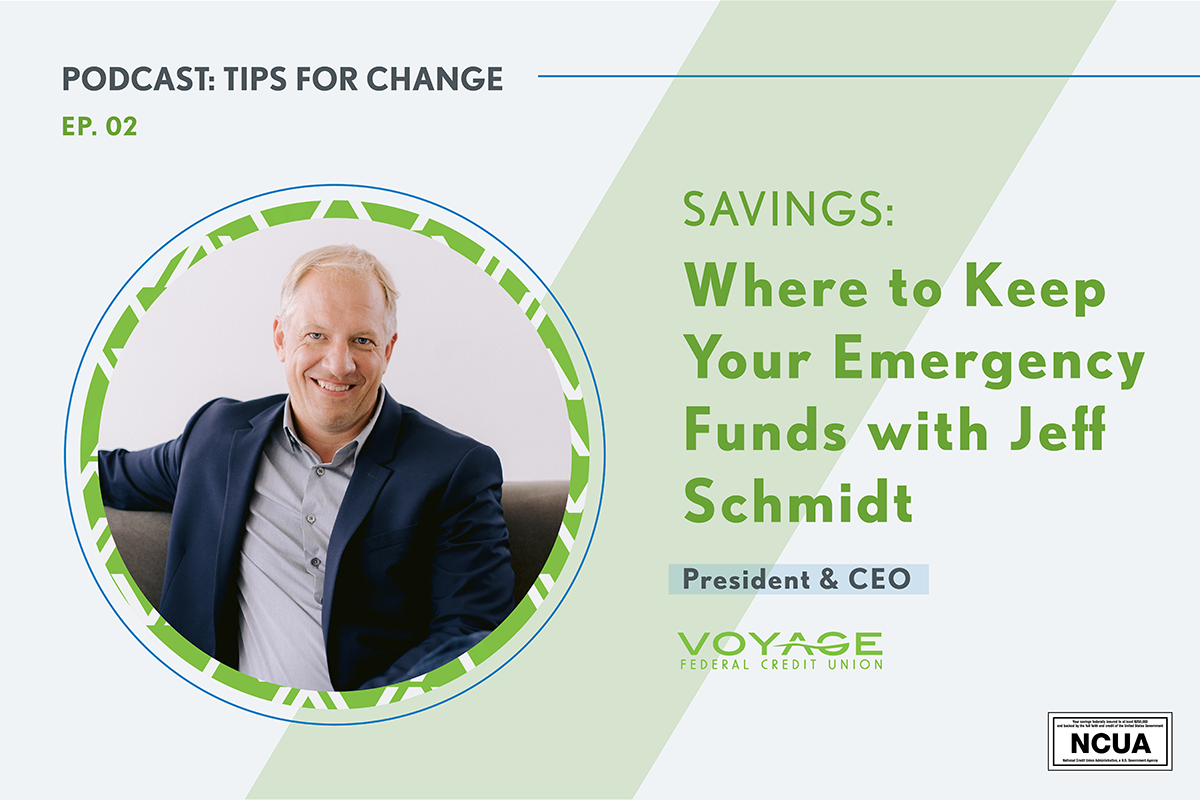Where to Keep Your Emergency Funds
How do you start building an emergency fund?
An emergency fund is something you need to prepare for in the event of substantial life-changing circumstances, like a job loss, ending up sick and in the hospital, or unable to work for a few months. A good rule is to go through all of your expenses and add up what they are in a month and then think about how many months it could be that you’re without that job. Try to have three to six months of money set aside that would cover all of your expenses so that if something drastic does happen in your life you don’t have to worry about money.
What kind of an account should you keep your emergency fund in?
You want your money to be liquid, or easily accessible. You don’t want it at risk in the market. A better return is always good, but safety is the big thing. Keeping funds in an insured financial institution is best. I would recommend the Voyage money market account or the average share account or the Voyage checking account.
What’s the difference between having a savings account in an emergency fund?
I don’t think there’s a huge difference. It’s just designated money. I know some people look at it like Dave Ramsey. If you’re following his plan you should have a thousand dollars in an emergency fund. I look at that as savings. In the event that your car breaks down or the water heater goes out or whatever you’re not putting that on a credit card. In my mind, an emergency savings account is for life-altering events that you need to prepare for the longer-term.
Can a line of credit be considered as an emergency fund?
It’s good to have access to money. People should be prepared because unfortunately, things can happen. Savings is better, but it can be really expensive. At the very least you want to have some money set aside and if you can’t save it all you should have some money available through credit cards or a home equity line of credit. But there’s kind of an adage out there, “I’ve never met anybody that has gotten rich by using credit cards.”
What’s the best way to start saving up for an emergency fund?
Start today. Budget for it like you would your car payments or your kid’s retirement or for your kid’s braces. Start managing a budget if it’s a hundred dollars a week or a hundred dollars a month, whatever the number is – plan for it, save for it, and do it. You have to get started.
Where should I put my money after I finish saving for my emergency fund?
You should pay off debt. After you have enough savings to cover short-term problems and you have an emergency fund set aside for three, four, five, six months then it’s really time to attack debt. There are other things you want to plan for whether it’s a vacation or your kid’s college or retirement.
Let us help you start saving today. Whether you’re building an emergency fund or saving for other life needs, we’re here to help. Open a savings account online, or give us a call at 605.338.2533.


